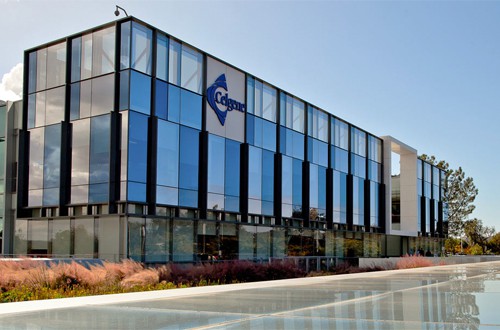
Celgene’s push into immuno-oncology has continued with a $1.4bn agreement to license ex-Asian rights to BeiGene’s PD-1 inhibitor BGB-A317, including $263m upfront.
The deal for the drug – which is in late-stage trials in cancer and has been tested in around 500 patients to date – gives haematological cancer specialist Celgene a bigger pipeline in solid tumours. Celgene has an earlier $450m deal with AstraZeneca on PD-L1 inhibitor durvalumab, just rolling out in its first markets, but that only focuses on blood cancers.
At a stroke, Celgene claims a PD-1/PD-L1 inhibitor candidate in two late-stage trials that will give it an accelerated route into a market estimated to be worth up to $30bn a year by 2022, albeit with five of the checkpoint inhibitors already on the market.
Under the terms of the deal Celgene takes a $150m stake in BeiGene, giving it a bigger presence in the Chinese market, and will pay the Chinese firm up to $980m in development, regulatory and sales milestone payments.
It is a great deal for BeiGene because it gives it a fast-track into the cancer markets in the US and Europe with a partner that is one of the largest players in cancer, while the cash injection will help it expand manufacturing and commercial operations in China in preparation for the potential launch of BGB-A317 and other pipeline drugs.
BeiGene is also acquiring Celgene’s commercial operations in Asia with the right to sell blood cancer therapies Revlimid (lenalidomide) and Vidaza (azacitidine) and Abraxane (albumin-bound paclitaxel) for pancreatic cancer – plus pipeline candidate C-122 for lymphoma and hepatocellular carcinoma – in the region.
Meanwhile, Celgene gets an in-house PD-1 inhibitor it can pair with its own cancer drugs and has the potential – according to BeiGene – of being a best-in-class PD-1 blocker. The Chinese company says BGB-A317 is differentiated from the currently approved PD-1 antibodies, as tweaks to the antibody’s Fc region “minimise potentially negative interactions with other immune cells”.
It will have a long way to go to catch the leaders in the PD-1/PD-L1 category however, as first entrants Bristol-Myers Squibb and Merck & Co have been joined by Roche, Merck KGaA/Pfizer and AstraZeneca in recent months, and all the players have dozens of trials trying to shore up territory in the fast-expanding market.




